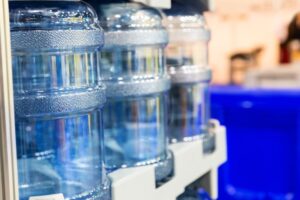What does the Grain in Water Softeners Mean?
The term “grains capacity” is used to describe the amount of water hardness a water softener can remove before it needs to regenerate. It’s also a way to refer to the amount of salt a device can use per regeneration cycle.
(Looking for “microbial testing of water“? Contact us Today!)

When buying a new water softener, you need to consider the grain capacity of your home’s water supply and how much you and your family use each day. Using this information, you can determine which size water softener is right for you.
If you have municipal water, you can find out how hard your water is by visiting the local water treatment plant’s website. If you don’t have access to a water treatment plant, you can look up the hardness of your city on a map or order a test kit that will tell you how many grains per gallon of minerals are in your water.
Once you have that information, you can use a water softener grain calculator to figure out which size water softener will be best for you. The two most important numbers to calculate are your water hardness (in grains per gallon) and how much you and your family use each and every day.
One grain equates to 1/7000th of a pound of dissolved calcium and magnesium, the minerals that cause your water to be hard. The higher the number of grains in your water, the more minerals you will need to soften your water.
A higher number of grains in your water means you will need to regenerate the softener more often, which can lead to a lot of extra salt being used and may shorten the lifespan of the unit. You’ll also need to be sure that the regeneration cycle is re-programmable so that you can adjust it according to your needs.
Another way to understand water softener grain capacity is to think of it as a measure of how well the device can reduce iron in your water, as well. If your water contains more than 10 ppm (parts per million) of iron, you’ll need to regenerate the unit less frequently or not at all.
In addition to removing calcium and magnesium, many modern water softeners are designed to reduce up to 10 ppm (parts per million) in ferrous iron from your water as well. This is great news because it can help prevent scale buildup on your pipes and improve the efficiency of your appliances.
If you don’t have a water hardness test kit at your home, you can get a free softener test kit from HomeWater 101 that can do the job for you. It’s also a great idea to check out your area’s annual drinking quality report (from your municipal water provider) for additional information about your water supply and its levels of hardness.
The aforementioned pitfalls are the reason that water softener manufacturers tend to promote devices with high grain capacities, but it’s important to be aware of these limitations and lower them by at least one-third before you purchase a new device. Fortunately, most devices on the market have re-programmable regeneration cycles that allow you to make adjustments to achieve the most efficient use of your device.

